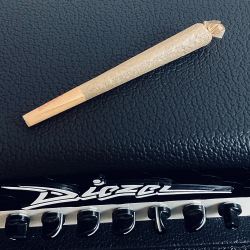“It never made sense for the DEA to list marijuana as a Schedule I drug. Making it a Schedule III controlled substance will make researching the drug’s medicinal uses easier. But it still makes federal criminals of the millions of adults who have been using marijuana recreationally for millennia and makes as much sense as it does to require people to get a prescription to ingest beer, wine, or whiskey.”

Bloomberg News is reporting that U.S. Department of Health and Human Services Assistant Secretary for Health Rachel Levine has sent a letter to Drug Enforcement Administrator Anne Milgram asking her agency to reclassify marijuana (cannabis) as a Schedule III drug. The DEA defines Schedule III drugs as “drugs with a moderate to low potential for physical and psychological dependence.” The agency currently classifies marijuana as Schedule I: a drug “with no currently accepted medical use and a high potential for abuse.” Of course, that definition begs the question, “Currently accepted by whom?” But an even more important question is, “Why should a plant people have been growing and using recreationally for millennia be scheduled as a drug when alcohol is not?”
When Congress authorized the law enforcement agency to judge the clinical applications, efficacy, and potential dangers of drugs, it authorized cops to practice medicine. And they have been engaging in malpractice. For example, no serious person would argue that marijuana has “no currently accepted medical use.” As far back as 1916, Sir William Osler, the so‐called “father of modern medicine,” recommended cannabis as the “drug of choice” for treating migraines. But cannabis’s history of “accepted medical use” dates back to at least 2800 B.C.
The DEA also schedules diamorphine (brand‐named “heroin” by Bayer, its manufacturer in the 19th century) Schedule I even though it is legally used in the U.K. and much of the developed world to treat pain and is employed for medication‐assisted treatment of opioid use disorder (OUD) in Switzerland, the Netherlands, Germany, Canada, the U.K, Denmark, and Spain.
And even though a bipartisan consensus is emerging that psychedelics may be extremely helpful in treating post‐traumatic stress disorder, depression, addiction, and compulsive disorders, and in end‐of‐life care, the DEA placed them on Schedule I, depriving researchers, clinicians, and patients of these tools for 50 years.
In her letter to the DEA, Assistant Secretary Levine wrote that her request was based upon the Food and Drug Administration’s review of marijuana’s classification. If the law enforcement agency reschedules marijuana as Schedule III, it will undoubtedly make it easier for clinical researchers to conduct high‐quality studies on the plant’s clinical uses and effectiveness. But it still means that the millions of people who use marijuana recreationally rather than medicinally are committing a federal crime. It also ensures that a black market in the prohibited plant will continue to thrive.
Instead of deferring to administrative agencies to reschedule marijuana, Congress can and should de‐schedule it.
#Reprinted with permission. Dr. Singer's original article can be found on the Cato Institute website.
